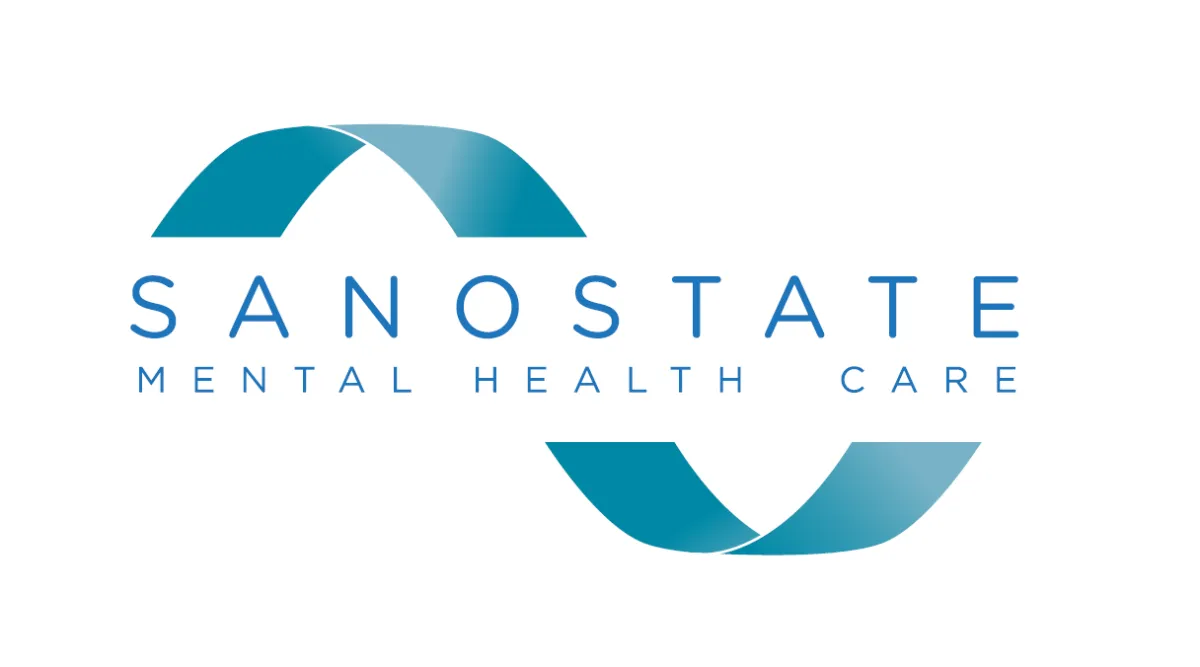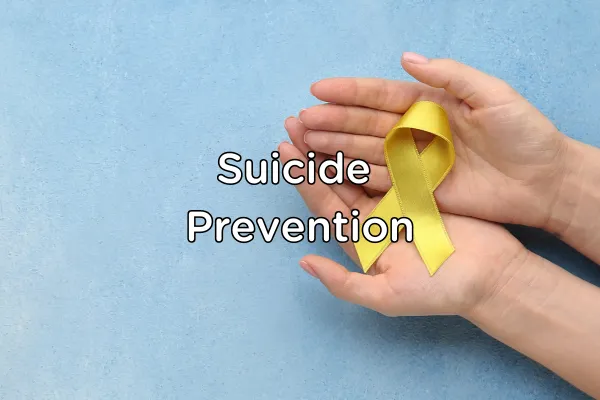General Inquiries: (587) 333-6349 - info@sanostate.com



Suicide Prevention: Separating Common Myths from Facts
... it is imperative to dispel some of the common myths surrounding suicide. - Emily Christensen
September is Suicide Prevention Month: A time to raise awareness of the serious health concern of suicide and the extensive impact it has on individuals, families, and communities. Suicide is a complex and often misunderstood issue, making it essential to develop a deeper understanding of its features to best support those affected. This month serves as a crucial reminder of the importance of open conversation, education, and a non-judgmental approach to suicide prevention.
During this month, it is imperative to dispel some of the common myths surrounding suicide. Dispelling these myths not only decreases the stigma for individuals experiencing thoughts of suicide but also increases the likelihood that those affected will access the support and guidance they need.
Here are some common myths:
MYTH: Thoughts of suicide are not common.
Reality: 1 in 5 People will experience thoughts of suicide at some point in their life.
There is a common misconception that thoughts of suicide are rare. In reality, many people will experience thoughts of suicide at some point in their life. Additionally, death by suicide is the 11th leading cause of death in the US, and the 3rd leading cause of death among young people. If you or a loved one are experiencing thoughts of suicide, you are not alone. Many others are also affected.
MYTH: Talking about suicide is harmful or ‘plants the idea’ in people’s head.
Reality: Talking about suicide reduces the risk of harm and can decrease deaths by suicide.
There is a widespread belief that discussing suicide may inadvertently encourage suicidal thoughts or actions. However, research shows that asking about an individual’s thoughts of suicide can significantly reduce the risk of suicide and emotional distress. When individuals feel that they can discuss their thoughts and feelings without fear of stigma, they are more likely to seek help and explore the emotions and issues they are facing. Talking about suicide is an essential part of suicide prevention.
MYTH: Crisis intervention is often unsuccessful.
Reality: Many effective intervention strategies are available to manage thoughts of suicide and ensure safety.
The misconception that crisis intervention is often unsuccessful can discourage individuals from seeking help and make loved ones feel helpless when trying to support someone in crisis. However, numerous effective crisis intervention strategies are available. These include:
Crisis Hotlines: One of the most immediate and accessible forms of intervention. These hotlines provide a confidential space where individuals can speak with trained professionals or volunteers who offer support, guidance, and resources. The Distress Centre (Calgary and Southern Alberta) is accessible by text and phone at 403-266-4357 24/7.
Counselling Services: Licensed mental health professionals offer therapy and counselling tailored to the individual needs. Through therapeutic techniques, individuals can explore what may contribute to their thoughts of suicide, develop coping mechanisms, and create safety plans. Regular counselling sessions will provide long-term support.
Emergency Interventions: In cases where imminent safety is a concern, emergency interventions are essential. This can involve calling emergency services or visiting an emergency room. These interventions ensure immediate safety and connect individuals with mental health professionals who can offer short-term care and develop long-term support plans. If you or a loved one are in immediate danger, please call 911.
Safety Planning: Safety planning involves creating a personalized plan to follow during a crisis. This plan includes recognizing warning signs, identifying coping strategies, listing emergency contacts, and specifying actions to take when thoughts of suicide arise. Safety planning empowers individuals with a clear, actionable roadmap for navigating crises. Read our blog post “How to make a safety plan” to learn how to create your own.
Our social media manager Allana, has very bravely shared her expierence navigating suicidal thoughts. She is incredible, living proof that crisis intervention DOES work! You can watch her story HERE.
MYTH: Only people with mental health conditions experience thoughts of suicide.
Reality: Many factors can contribute to thoughts of suicide.
While mental health conditions can contribute to thoughts of suicide, many other factors can create these feelings. In fact, among people who die by suicide, 46% do not have a mental health diagnosis. Factors such as trauma, relationship issues, financial problems, chronic pain, grief, addiction, and other stressors can lead someone to contemplate suicide. It’s important to recognize that anyone can experience these thoughts, regardless of their mental health history.
MYTH: Thoughts of suicide are a sign of weakness/lack of resilience.
Reality: Experiencing thoughts of suicide is not a weakness; it is a sign that someone is in profound pain and needs help.
The misconception that suicidal thoughts reflect a lack of resilience is both incorrect and harmful. The reality is that even resilient individuals can face overwhelming emotional struggles that lead to these thoughts. Many people who manage their own thoughts of suicide demonstrate exceptional resilience by coping with these feelings and keeping themselves safe in times of distress.
Conclusion
Due to the unfortunate stigma around suicide and mental health concerns, there are many myths about suicide. The reality is thoughts of suicide are a common human experience and can be alleviated and addressed with various effective treatments. Raising awareness of suicide and its effects only has benefits and helps connect those who are struggling with the proper resources they need. If you or someone you know is struggling with a preoccupation with suicide, help is out there! Reaching out for guidance is the first step to getting the support you need.
If you or someone you love is experiencing imminent thoughts of suicide or self-harm, please contact a local distress centre or call 911.
In Calgary and Southern Alberta - Call -1- 403-266-4357
In Edmonton and Area - Call - 1-780-482-4357
Alberta Wide - Call - 1-877-303-2642 (Toll Fee)
💙
Disclaimer
Our content is for informational and educational purposes and is not a replacement for professional advice, diagnosis, or treatment. If you're facing mental health concerns, please seek help from a qualified professional for personalized guidance. Every individual's situation is unique, so use the information here at your discretion. While we strive for accuracy, the field of psychology is ever-evolving, and our content may not always reflect the latest research. Please prioritize your privacy by avoiding sharing personal information in comments or interactions. Your well-being is our top concern, so use our content for educational purposes, but remember to rely on professionals for your specific needs.
Reference
Akkas, F., & Corr, A. (2022, May 2). Mental health conditions can contribute to suicide risk. The Pew Charitable Trusts. https://www.pewtrusts.org/en/research-and-analysis/articles/2022/05/02/mental-health-conditions-can-contribute-to-suicide-risk
America Foundation for Suicide Prevention (Ed.). (2024, August 26). Suicide statistics. American Foundation for Suicide Prevention. https://afsp.org/suicide-statistics/
Cleveland Clinic (Ed.). (2024, August 13). Suicide: Warning signs & how to get help. Cleveland Clinic. https://my.clevelandclinic.org/health/articles/suicide
Dazzi, T., Gribble, R., Wessely, S., & Fear, N. T. (2014). Does asking about suicide and related behaviours induce suicidal ideation? what is the evidence? Psychological Medicine, 44(16), 3361–3363. https://doi.org/10.1017/s0033291714001299
Distress Centre (Ed.). (2024, May 10). 24-hour crisis support in Calgary & southern Alberta. Distress Centre -. https://distresscentre.com/24-hour-crisis-support/
Johns Hopkins Medicine (Ed.). (2024, May 13). Teen suicide. Johns Hopkins Medicine. https://www.hopkinsmedicine.org/health/conditions-and-diseases/teen-suicide#:~:text=For%20youth%20ages%2010%20to,die%20from%20suicide%20than%20girls.
General Inquiries:
Our Locations:
Additional Resources:
About Us:
We strive for excellence in psychological treatment. We are committed to providing professional, caring, innovative, and research-based services.
© 2024 Sano State Taylored Psychology. All Rights Reserved.

